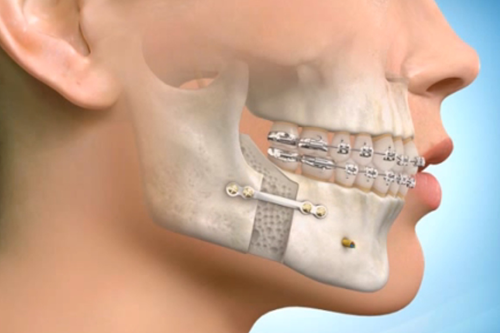Jaw surgery, medically known as orthognathic surgery, is a specialized procedure designed to correct irregularities of the jaw bones and realign the jaws and teeth to improve their function and appearance. It’s often recommended for individuals who suffer from severe bite problems هزینه عمل فک, facial imbalances, or difficulties with chewing, speaking, or breathing.
Why is Jaw Surgery Needed?
While many jaw alignment issues can be treated with braces alone, some problems are due to skeletal discrepancies that require surgical intervention. Common reasons for jaw surgery include:
-
Malocclusion (bad bite): When the upper and lower jaws don’t fit together properly, causing issues with biting, chewing, or speech.
-
Jaw misalignment: Conditions like underbite, overbite, crossbite, or open bite.
-
Facial asymmetry: Uneven jaw growth can cause the face to look unbalanced.
-
Sleep apnea: Some jaw problems contribute to obstructive sleep apnea, where surgery can help open the airway.
-
Trauma or injury: Correcting fractures or deformities caused by accidents.
-
Temporomandibular joint (TMJ) disorders: Severe jaw pain and dysfunction sometimes require surgical correction.
What Does Jaw Surgery Involve?
Jaw surgery is typically done by an oral and maxillofacial surgeon, often in coordination with an orthodontist. The process involves several stages:
-
Pre-surgical orthodontics: Braces are used for months to align the teeth properly before surgery.
-
Surgery: The surgeon makes precise cuts in the jawbone to move the jaws into the correct position. This may involve the upper jaw (maxilla), lower jaw (mandible), or both.
-
Post-surgical orthodontics: After healing, braces are often used again to fine-tune the bite.
The surgery itself usually requires a hospital stay, and recovery can take several weeks. During this time, patients may have to follow a soft or liquid diet and avoid strenuous activities.
Benefits of Jaw Surgery
-
Improved ability to chew, speak, and breathe.
-
Enhanced facial symmetry and appearance.
-
Relief from chronic jaw or TMJ pain.
-
Treatment of obstructive sleep apnea.
-
Long-term dental health benefits by correcting bite and jaw alignment.
Risks and Considerations
As with any major surgery, jaw surgery carries risks such as infection, bleeding, nerve injury leading to numbness, and relapse of the jaw position. A thorough evaluation by a skilled surgical team and close follow-up care can minimize these risks.
Is Jaw Surgery Right for You?
Jaw surgery is a life-changing procedure, but it’s not suitable for everyone. It’s typically recommended when orthodontic treatments alone cannot correct the problem. If you experience persistent jaw pain, difficulty chewing, or facial imbalance, consult with an orthodontist or oral surgeon for an evaluation.
